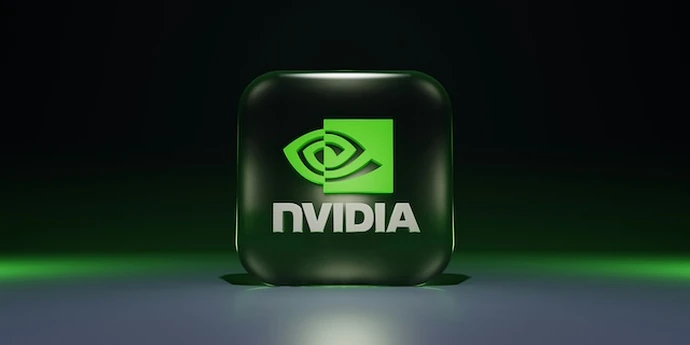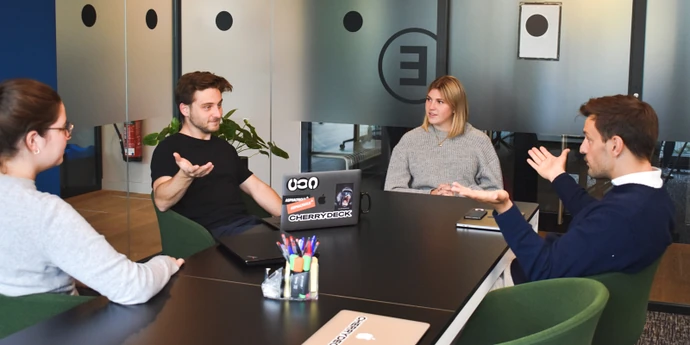Research engineer interviews at Meta are notoriously challenging. The pace is intense, the questions are specific, and the bar for execution is uncompromisingly high.
In this guide, we're going to cover everything you need to know to prepare for research engineer interviews at Meta.
We've gathered insights from candidates who've successfully navigated Meta's interview process, analyzed hundreds of reports from Glassdoor and Blind, and synthesized information from official Meta sources to put together this comprehensive guide.
Below, you'll find a detailed overview of the interview process, example questions, how to answer them, and a preparation plan.
Here's an overview of everything we cover:
- Role and salary
- Interview process and timeline
- Example interview questions
- Interviewing tips
- Preparation plan
Click here to practice 1-on-1 with an ex-Meta interviewer.
Let's get started!
1. Meta research engineer role and salary ↑
Before we dive into the interview process, let's understand what a research engineer at Meta actually does.
1.1 What does a Meta research engineer do?
Research engineers at Meta sit at the intersection of research and product development. Unlike research scientists who are more publication-focused, research engineers are primarily focused on shipping production-grade systems. You're expected to write high-quality production code, collaborate closely with software engineers, and move quickly through iteration cycles.
Research engineers at Meta fall under 3 levels: IC4, IC5, and IC6. The types of problems you work on depend on your team, but broadly, research engineers at Meta are involved in:
- Building and optimizing ML systems at scale
- Developing novel algorithms and models
- Implementing research into production
- Writing production-quality code
- Collaborating across teams to define goals and ship features
What distinguishes this role from a traditional software engineer position is the emphasis on research methodology and staying current with the latest papers in your domain. But unlike pure research roles, you're constantly shipping code that has to work at Meta's scale.
1.2 What skills are required for a Meta research engineer?
Based on current research engineer openings at Meta and reports from successful candidates on Glassdoor, most research engineer positions at Meta require a Bachelor's or Master's degree in Computer Science, Machine Learning, Physics, or a related field. Some positions accept PhDs, but it's not typically required.
For experience, expect to need 2-6 years of hands-on work building ML systems, whether in industry, startups, or research labs. This can include experience with ML frameworks like PyTorch or TensorFlow, building data pipelines at scale, and shipping models to production.
Technical competencies include strong coding ability in Python, C++, or similar languages; a deep understanding of machine learning fundamentals and recent advances in your domain; experience with system design and scalability; and familiarity with experimental design and evaluation methodologies.
Soft skills are equally important. You'll need to communicate complex ideas clearly, especially when discussing trade-offs with cross-functional partners. Meta values collaboration and the ability to work in fast-paced, ambiguous environments.
1.3 How much does a Meta research engineer make?
Meta's competitive salary is among the numerous factors that draw high-performing engineers to the company.
Below are the average salaries and compensation for different types of research engineers at Meta. This is based on the available data on Levels.fyi.

How you do in your interviews will help determine what you’ll be offered. That’s why hiring one of our ex-Meta interview coaches can provide such a significant return on investment!
And remember, compensation packages are always negotiable, even at Meta.
If you do get an offer, don’t be afraid to ask for more. If you need help negotiating, use our guide to Meta offer negotiations and consider booking one of our salary negotiation coaches to get expert advice.
2. Meta research engineer interview process and timeline ↑
2.1 What interviews to expect
Meta's research engineer interview process typically takes 2-3 months and follows this general structure:
- Resume screen
- Initial recruiter screening (15-20 min, phone/video)
- Technical screen (45 min, optional and may be waived for referrals)
- Full loop onsite (4-5 rounds, 45 min each)
2.1.1 Resume screen ↑
First, recruiters will look at your resume and assess if your experience matches the open position. This is the most competitive step in the process, as millions of candidates do not make it past this stage.
Take a moment to make sure your resume actually speaks Meta’s language. Their culture runs on six core values:
- Move Fast: Meta loves to build and learn faster than anyone else. Meaning, you’ll be acting with urgency. You won’t wait until next week to do something we could do today.
- Focus on Long-Term Impact: This value prioritizes building products and infrastructure that will have lasting effects. You’ll need to highlight work that had sustainable impact, strategic thinking about the future, or projects where you considered scalability and long-term consequences.
- Build Awesome Things: Meta pushes you to ship things that are not just good, but also awe-inspiring.
- Live in the Future: Anticipate where the industry is heading and build for that world, not the current one. In your resume, for example, show you adopted new tech early, predicted market trends, or built features users didn't know they needed yet.
- Be Direct and Respect Your Colleagues: Meta wants candid feedback and real conversations, not corporate politeness that wastes time.
- Meta, Metamates, Me: At Meta, the priority order is: company mission first, your teammates second, yourself last. A good way to show that is to show collaboration over solo heroics, times you made teammates successful, or put team goals above personal recognition.
Does your resume paint a picture of someone who acts with urgency, takes risks and innovates, and has a highly collaborative nature? If so, your resume is ready for Meta.
If you’re looking for expert feedback on your resume, you can get input from our team of ex-Meta recruiters, who will cover what achievements to focus on (or ignore), how to fine-tune your bullet points, and more.
It can also be helpful to get an employee referral to the Meta recruiting team internally. According to Glassdoor, 31% of candidates who got interviews with Meta were through employee referrals. So, if you do have a connection to someone who works at Meta, this can help you get your foot in the door for an interview.
2.1.2 Initial recruiter call (15-20 minutes) ↑
This is a brief, conversational call with an HR recruiter. The goal is straightforward: verify you're a real engineer with relevant experience, confirm your resume is accurate, and assess your genuine interest in the role.
You can expect general behavioral questions, such as "Tell me about yourself" or "Why do you want to work at Meta?".
The best way to prepare is to have a tight, two-minute version of your background and a few specific examples of work that show impact, especially projects that touch on machine learning, AI, or large-scale systems.
As ex-Meta recruiter Devang put it, “Hiring managers can tell when you’re just saying what you think they want to hear.” So don’t oversell. Be clear, confident, and genuinely curious about the role. Ask smart questions about the team, tech stack, or hiring timeline. That’s more than enough to leave a strong impression.
If you get past this screen, the recruiter will then schedule a technical interview with a Meta hiring manager.
2.1.3 Technical screen (45 minutes) ↑
For many research engineer roles, especially with strong referrals, this round can be skipped. If it’s not, expect two LeetCode-style coding questions in 45 minutes, roughly 20 minutes per question.
The questions are straightforward data structure and algorithm problems, not specifically ML-related at this stage. You'll typically see easy to medium difficulty problems.
The bar here is lower than the onsite rounds. What's being tested is whether you can solve both problems correctly within the time limit. There's no trick here. The interviewer wants to confirm you can code under time pressure.
You'll be using CoderPad for this interview, so it may be worth familiarizing yourself with it beforehand.
2.1.4 Full loop onsite (5 rounds) ↑
The final stage in the interview process for the research engineer candidate position is what Meta calls its Full Loop round of onsite or video conferencing interviews. It typically spans 1-2 consecutive days of back-to-back interviews.
As we’ve gathered from Glassdoor reports, this typically includes 5 interviews of 45 minutes each, consisting of:
- Coding interviews (2 rounds)
- System design interviews (2 rounds)
- General system design
- ML system design
- Behavioral interview
For your coding interviews, you'll need to work through your solutions on a whiteboard or the online equivalent (like CoderPad) if you're not there in person.
It's also worth mentioning that the questions you're asked in the full loop interviews tend to be more difficult than the questions from the initial screen. So be sure to double down on your preparation for them!
Note: Some positions (especially Reality Labs or senior levels) include:
- Presentation round: You present a 20-30 minute talk on your prior research/work, followed by 20-30 minutes of rapid-fire technical questions
- Cross-functional round: For senior roles, assessing your ability to collaborate across teams and provide strategic direction
3. Meta research engineer example questions ↑
As explained in Section 2, you'll face 4 or 5 interviews at the full loop stage, lasting 45 minutes each. To help you perform at your best, we analyzed interview questions reported by Meta candidates on Glassdoor and identified the types of questions most frequently asked.
Here are the question types you can expect for Meta research engineer interviews:
Where necessary, grammar and phrasing have been edited to make questions easier to understand.
3.1 Coding questions ↑
For coding interviews, you'll face two dedicated rounds focused on coding ability. Each round has you solve two LeetCode-style problems in 45 minutes, which works out to roughly 20 minutes per problem.
Meta is faster-paced than Google or other tech companies here. You need to solve problems in 20 minutes versus 45 minutes at competitors. This matters because if you don't immediately recognize the approach, you likely won't figure it out in time.
That's not a design flaw. Meta is looking for people who can think and code quickly under pressure. What's being tested is raw coding speed, your ability to think on your feet, and how clearly you communicate your approach. They want to see if you can understand a problem, outline a solution, and implement it with velocity.
You'll have at least three coding interviews at Meta.
Meta uses a text editor with syntax highlighting, but no autocomplete and no code execution. You must write code that works without being able to test it.
To prepare, many candidates recommend using LeetCode Premium. Meta tends to pull from the same question bank, so filtering Meta-tagged questions from the past three months and sorting them by decreasing frequency will give you a solid list of questions to study.
Meta heavily favors these topics: strings, hash maps, binary search, DFS/trees, BFS/graphs, heaps, and stack-based problems.
Example coding questions asked in Meta research engineer interviews
- Implement a calculator with an input string like "10+3*5" that returns the correct result (handles order of operations).
- Compute the dot product of two sparse vectors (a1×b1 + a2×b2 + ... + aN×bN).
- Find all pairs of indices in an array whose elements sum to a given target.
- Binary matrix multiplication, with follow-up: How would you optimize this?
For more coding practice, check out our Meta coding interview questions guide.
3.2 System design questions ↑
The system design rounds are in two parts:
- General system design (Round 1): Standard software engineering system design. You might be asked to design services related to Meta products or general infrastructure problems. Focus on components, scalability, and trade-offs.
- ML system design (Round 2): This is where your research background matters. You'll be asked to design an end-to-end ML system for a real or hypothetical product. This could be:
- Building a recommendation system
- Designing a computer vision pipeline
- Creating a ranking system for Marketplace listings
The interviewer will ask 2-3 clarifying questions, mostly about trade-offs between approaches. As one interviewer put it, this feels like "delivering a YouTube lecture" in that it’s self-driven. You're laying out the entire vision of how you'd build the system, from data collection through model serving to monitoring.
System design questions at Meta are typically more open-ended than coding questions and feel more like a conversation. This is where you show that you can be both creative and structured.
As ex-Meta recruiter, Luis, puts it, “You need to show you understand the problem and can work at scale, with a way to calculate the impact of your decisions.” So, prepare to visualize your thoughts on Excalidraw (Meta's preferred tool for this) as you discuss the questions posed by your interviewers.
Here are some common questions you may encounter:
Example system design questions asked in Meta research engineer interviews
General system design:
- Design a geolocation service.
- Design a system that counts ad click events at scale (100B events/day with <30s latency).
- Design a service to handle real-time notifications.
- Design a distributed cache system.
ML/AI system design:
- You mentioned using transformer architectures. Have you seen any recent work that could improve that?
- Design a recommendation system for the Instagram or Facebook feed.
- Build a ranking pipeline for Marketplace listings that scales to millions of items.
- Create a computer vision system to detect objects in images at scale.
- Create an image classification pipeline that can handle billions of images.
- Design a fraud detection system for payment transactions at scale.
For great strategies to ace the system design round, see our Meta system design interview guide.
3.3 Behavioral questions ↑
In addition to the question types outlined above, you can also expect to be asked some behavioral questions about your past work, how you handle challenges, and why you're interested in Meta.
Behavioral interviews at Meta can be tricky. There’s no clear-cut “correct” answer, which makes it harder to gauge your performance in the moment.
That said, this round carries significant weight in the hiring decision. Meta is looking for thoughtful, self-aware candidates who can navigate ambiguity, communicate clearly, and work well across teams.
Remember, Meta's core values include Move Fast, Build Awesome Things, Be Direct, and Focus on Long-Term Impact. Your answers should subtly reflect these values.
Here are the types of questions you'll encounter:
Example behavioral questions asked in Meta research engineer interviews
- Why are you interested in joining Meta?
- What’s an achievement you’re most proud of?
- What would you say are your biggest weaknesses or areas for growth?
- Describe a time you disagreed with a coworker. How did you handle it?
- Can you share an example of when you invested significant time in a project but eventually had to change direction?
- Walk me through the reasoning behind a key design choice you made on a past project.
For detailed guidance on behavioral answers, see our Meta behavioral interview guide.
4. Meta research engineer interviewing tips ↑
You might be a fantastic research engineer, but unfortunately, that won’t necessarily be enough to ace your interviews at Meta. Interviewing is a skill in itself that you need to learn.
Let’s look at some key tips to make sure you approach your interviews in the right way.
4.1 Communicate your thought process
Don't code silently. Walk your interviewer through your reasoning. One candidate who passed said:
"I explained my thinking/solution before coding, but ended up changing some details during implementation to handle cases I hadn't thought of upfront."
This is fine. What matters is that you're talking through your reasoning. Interviewers can't read your mind; they can only judge you based on your answer.
Your interviewer may also give you hints about whether you’re on the right track or not. Be alert for these, and be ready to pivot once you’ve gotten the prompt. This shows you’re eager to learn and listen well to feedback.
4.2 Manage your time ruthlessly
You have 20 minutes per coding problem. Practice with a timer. Many candidates fail not because they can't solve the problem, but because they spend 10 minutes thinking and run out of time.
4.3 Present multiple possible solutions
When answering coding or system design interview questions, aim to present multiple possible solutions if you can. Meta interviewers care not just about what you choose, but why.
For complex or ambiguous problems, break them down into smaller, logical groups and explain how you’d approach each one. Then, show how these pieces fit together into your final proposed solution. This demonstrates both your structured thinking and your ability to reason through trade-offs.
4.5 Learn a technique for answering questions
When answering your Meta research engineer interview questions, you should focus on your most relevant achievements and experiences and communicate them in a clear way. An easy way to achieve this is to use a step-by-step method to tell your stories.
The STAR method (Situation, Task, Action, Result) is a popular approach for answering behavioral questions because it’s easy to remember. You may have already heard of it.
However, we’ve found that candidates often find it difficult to distinguish the difference between steps two and three or task and action. Some also forget to include lessons learned in the results step, which is especially crucial when discussing past failures.
So, we’ve developed the IGotAnOffer method (SPSIL: Situation-Problem-Solution-Impact-Lessons) to correct some of the pitfalls we’ve observed when using the STAR method.
The IGotAnOffer SPSIL Method
- Situation: Start by giving the necessary context of the situation you were in. Describe your role, the team, the organization, the market, etc. You should only give the minimum context needed to understand the problem and the solution in your story. Nothing more.
- Problem: Outline the problem you and your team were facing.
- Solution: Explain the solution you came up with to solve the problem. Step through how you went about implementing your solution, and focus on your contribution over what the team / larger organization did.
- Impact: Summarize the positive results you achieved for your team, department, and organization. As much as possible, quantify the impact.
- Lessons: Conclude with any lessons you might have learned in the process.
Learn more about the SPSIL method here.
4.5 Ask clarifying questions
Often, the questions you’ll get will be quite ambiguous. Make sure you ask questions that can help you clarify and understand the problem.
Be upfront if you encounter topics you have little experience with, but don’t give up on tackling them. Meta isn’t just testing your technical skills but also your ability to deal with problems you’re not familiar with.
4.6 Brute force, then iterate
When coding, don’t necessarily go for the perfect solution straight away. Meta recommends that you first try and find a solution that works, then iterate to refine your answer.
4.7 Get comfortable with coding on various mediums
Meta typically asks interviewees to code in CoderPad if the interview is done online. But if the interview is in person, you might be asked to code on paper or a whiteboard. You can check with your recruiter if you’re not sure which medium to use.
4.8 State and check assumptions
You need to explicitly state assumptions, explain why you’re making them, and check with your interviewer to see if those assumptions are reasonable.
5. Preparation plan ↑
Now that you know what questions to expect, let's focus on how to prepare.
The performance bar at Meta is extremely high. Some people even go as far as quitting their jobs to prepare for interviews full-time. This is extreme and not what we recommend doing, but it shows how much effort some candidates are ready to put in.
We've coached more than 15,000 people for interviews since 2018. Below is our four-step prep plan for Meta.
5.1 Understand Meta's culture
Most candidates fail to do this. But before investing tens of hours preparing for an interview at Meta, you should take some time to make sure it's actually the right company for you.
Meta is prestigious, so it's tempting to ignore that step completely. But in our experience, the prestige in itself won't make you happy day-to-day. It's the type of work and the people you work with that will.
If you know engineers who work at Meta or used to work there, it's a good idea to talk to them to understand what the culture is like. In addition, we would recommend reading the following:
- About Meta
- Meta’s mission statement
- Meta's 6 core values
- Engineering at Meta
- Meta’s products
- Meta Newsroom
- Meta Careers
- Meta Life
- Meta Diversity
- Meta Employee Benefits
- Interviewing at Meta blog
- How to get users and grow (by Alex Schultz, VP of Growth at Meta)
- How Facebook Used Science And Empathy To Reach Two Billion Users (by FastCompany)
- Facebook’s hacker culture (by Mark Zuckerberg, via Wired)
- Meta’s annual reports and strategy presentations (by Meta)
- Meta's approach to tech trends (by CB Insights)
- Meta org culture analysis (by Panmore Institute)
5.2 Practice by yourself
As we've outlined above, you'll have to prepare for several different categories of questions ahead of your Meta research engineer interviews.
In this article, we've recommended various deep-dive articles that will help you prepare for each question category. Here's the complete list, plus a couple of extras we think could be useful.
-
Official Meta guides: Meta’s Full Loop Interview Guide
-
Career conversation & motivation
-
General: Most-asked Meta interview questions
-
Coding
-
General: Coding interview prep
-
Meta-specific: Meta coding interview questions
-
Topic-specific: Arrays, graphs, dynamic programming, and strings
-
-
Behavioral questions
-
General: Meta behavioral interview questions
-
People management: People management questions in tech interviews
-
Collaboration and partnerships: Dealing with conflict, dealing with stakeholders
-
Once you’re in command of the subject matters relevant to your target position and company, you’ll want to practice answering questions.
But by yourself, you can’t simulate thinking on your feet or the pressure of performing in front of a stranger. Plus, practicing alone doesn’t prepare you for unexpected follow-up questions and doesn’t provide feedback.
That’s why many candidates try to practice with friends or peers.
5.3 Practice with peers
If you have friends or peers who can do mock interviews with you, that's an option worth trying. It’s free, but be warned, you may come up against the following problems:
- It’s hard to know if the feedback you get is accurate.
- They’re unlikely to have insider knowledge of interviews at your target company.
- On peer platforms, people often waste your time by not showing up.
For those reasons, many candidates skip peer mock interviews and go straight to mock interviews with an expert.
5.4 Practice with experienced ex-Meta interviewers
In our experience, practicing real interviews with experts who can give you company-specific feedback makes a huge difference.
Find a Meta interview coach so you can:
- Test yourself under real interview conditions
- Get accurate feedback from a real expert
- Build your confidence
- Get company-specific insights
- Learn how to tell the right stories, better
- Save time by focusing your preparation
Landing a job at a big tech company often results in a $50,000 per year or more increase in total compensation. In our experience, three or four coaching sessions worth ~$500 will make a significant difference in your ability to land the job. That’s an ROI of 100x!
Click here to book mock interviews with experienced Meta ex-interviewers.















